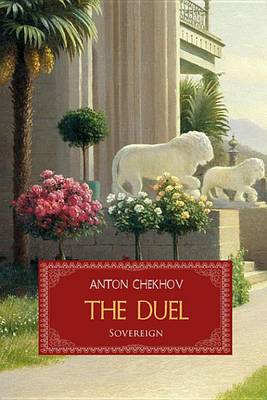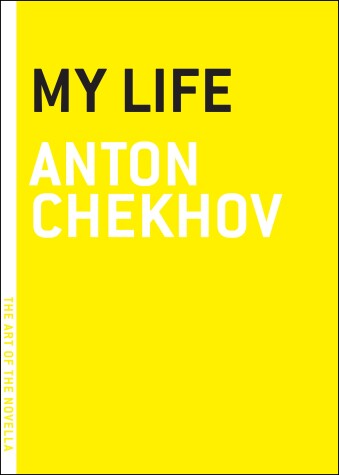The Art of the Novella
2 total works
First published in 1891, this morality tale pits a scientist, a government worker, his mistress, a deacon, and a physician against one another in a verbal battle of wits and ethics that explodes into a violent contest: the duel. When Laevsky, a lazy youth who works for the government, tires of his dependent mistress, Nadyezhda Fyodorovna, Von Koren, the scientist, delivers a scathing critique of Loevsky’s egotism, forcing the young man to examine his soul. The Duel is a tale of human weakness, the possibility of forgiveness, and a man’s ultimate ability to change his ways. It is classic Chekhov, revealing the multifaceted essence of human nature.
...perhaps I was not living as I ought.
Renowned as the greatest short story writer ever, Anton Chekhov was also a master of the novella, and perhaps his most overlooked is this gem, My Life—the tale of a rebellious young man so disgusted with bourgeois society that he drops out to live amongst the working classes, only to find himself confronted by the morally and mentally deadening effects of provincialism.
The 1896 tale is partly a commentary on Tolstoyan philosophy, and partly an autobiographical reflection on Chekhov's own small-town background. But it is, more importantly, Chekhov in his prime, displaying all his famous strengths—vivid characters, restrained but telling details, and brilliant psychological observation—and one of his most stirring themes: the youthful struggle to maintain idealism against growing isolation.
The Art of The Novella Series
Too short to be a novel, too long to be a short story, the novella is generally unrecognized by academics and publishers. Nonetheless, it is a form beloved and practiced by literature's greatest writers. In the Art Of The Novella series, Melville House celebrates this renegade art form and its practitioners with titles that are, in many instances, presented in book form for the first time.
Renowned as the greatest short story writer ever, Anton Chekhov was also a master of the novella, and perhaps his most overlooked is this gem, My Life—the tale of a rebellious young man so disgusted with bourgeois society that he drops out to live amongst the working classes, only to find himself confronted by the morally and mentally deadening effects of provincialism.
The 1896 tale is partly a commentary on Tolstoyan philosophy, and partly an autobiographical reflection on Chekhov's own small-town background. But it is, more importantly, Chekhov in his prime, displaying all his famous strengths—vivid characters, restrained but telling details, and brilliant psychological observation—and one of his most stirring themes: the youthful struggle to maintain idealism against growing isolation.
The Art of The Novella Series
Too short to be a novel, too long to be a short story, the novella is generally unrecognized by academics and publishers. Nonetheless, it is a form beloved and practiced by literature's greatest writers. In the Art Of The Novella series, Melville House celebrates this renegade art form and its practitioners with titles that are, in many instances, presented in book form for the first time.

